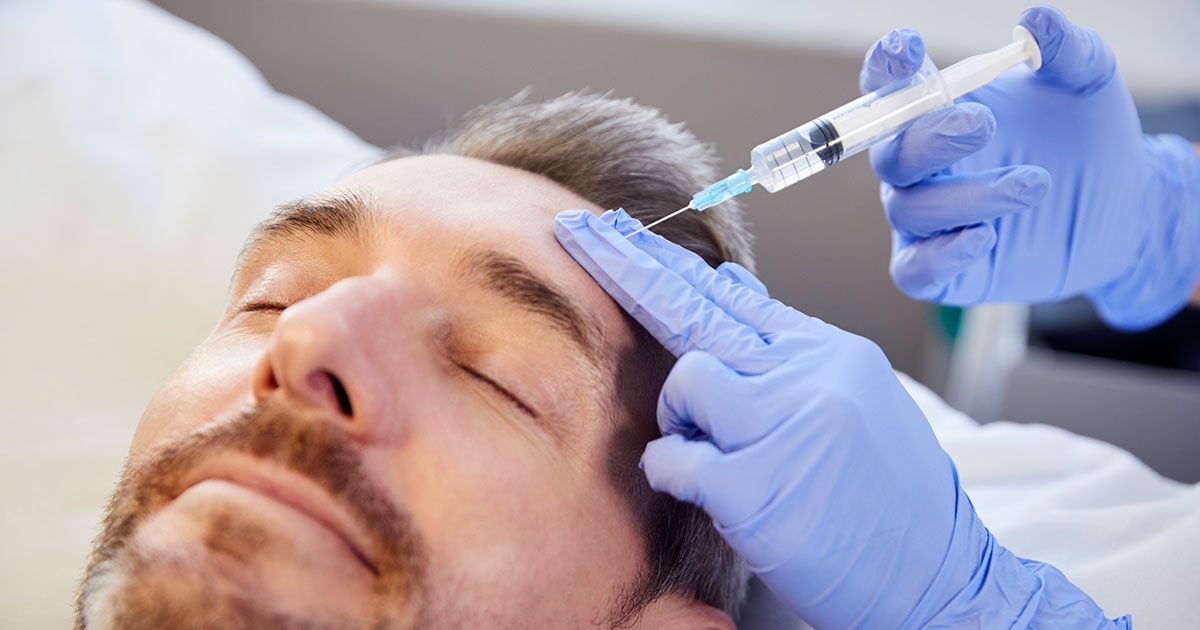
In today’s society, Botox is often widely regarded as a tool to stave off old age, or at the very least delay its appearance. From the moment it became accessible, rich socialites on television were depicted as being incredibly fond of the procedure, and celebrities began keeping their hair dyed and their wrinkles smooth well into their 70s. And while Botox was once regarded as a luxury for the elite, it is nowadays considered much more affordable and routine, and has found a solid place in people’s beauty regimens.
Perhaps it’s because of its effectiveness and popularity in this regard that people continue to assume its only purpose is to keep us looking beautiful. But, in truth, the benefits of Botox go far beyond skin deep. There is much more to the injections than simply preserving a youthful face. Let’s start by taking a closer look at Botox and how it works.
What Is Botox?
First of all, it’s important to clarify, what is Botox? Botox, also known as botulinum toxin, is essentially a neurotoxin that paralyzes muscles in your face. Initially used to treat facial tics and excessive sweating, it was found to have the welcome side effect of smoothing wrinkles by paralyzing the muscles that caused said wrinkles. While this particular application has become the one most widely associated with Botox injections, it is still used for a number of other treatments today. Such treatments include soothing pain resulting from nerve damage or migraines and can offer patients a great deal of relief. Given this information, it is clear that it can assist with various physical ailments. However, there are also studies that suggest the procedure can assist with psychological ailments as well.
Effects on Mental Health
There is evidence to suggest that in addition to all the other benefits of Botox, it can be used to address mental health issues. More specifically, that it can be employed to treat anxiety and depression.
One thing that has already been observed is how many people find themselves happier after a procedure involving Botox simply because of their reaction to their new appearance. A lot of us are hampered by our insecurities, and much in the way that a woman can find herself feeling more confident and beautiful when she wears makeup, Botox injections can have an incredibly positive effect on a patient’s self-worth. Someone who is more satisfied with their appearance is more likely to focus on other aspects of their life and live happily, as opposed to spending all their time and energy thinking about all the things they don’t like about themselves. But, as it turns out, that’s just the tip of the iceberg.
Botox and the Facial Feedback Hypothesis

Studies have already proven that someone is more likely to feel positive emotions when exhibiting a positive facial expression, such as smiling. There are limitations of course, but if you are in a relatively neutral emotional state, simply shifting your face into a smile can improve your mood. Try it now and see if it works for you. Our body uses muscles to convey emotion, so it makes sense that the two would be inextricably connected. The key is in examining how we can use this to our advantage when it comes to dealing with negative emotions. Similar studies have shown that the act of frowning can cause someone to react more strongly to unpleasant stimuli. What if you could somehow stop someone from frowning in the first place? Would that in turn limit how upset they feel?
That is precisely what scientists have been wondering for several years, as far back as 1894. However, such a hypothesis proved difficult to test. Subjects instructed to inhibit their facial expressions are unavoidably influenced by such a direction, or they might attempt to alter their emotional state purposefully, invalidating the experiment. Though the question was approached with the best of intentions, there were simply too many variables to obtain any reliable data.
Enter Botox. The introduction of Botox allowed for a more controlled approach, giving researchers the ability to paralyze certain muscles of a test subject’s face involuntarily. There was now an opportunity for real research to be conducted on the subject.
Testing the Effects of Botox on Depression
In one particular study, patients with no other interest in facial fillers experiencing depression were given Botox injections to specific muscles called the Corrugator Supercilii and the Procerus, also known as “grief muscles.” These are responsible for pulling the eyebrows and forehead downwards, creating a frown. Weeks after the treatment, there was a measurable improvement in the patients’ depression. They reported a 47.1% decrease in symptoms of depression, in comparison to a mere 9.2% improvement noted by the placebo group. These were people who had previously had little to no success with other treatments, making this a remarkable success.
Testing the Effects of Botox on Mood
Another study examined two groups of people: the first were given Botox injections, and the second were given a cosmetic facial filler that did not affect facial muscles instead, as a control. Prior to the treatment, the groups were exposed to a series of positive and negative clips, and their emotional responses were recorded. They were then shown the same clips after the treatment and asked to report any changes in said responses. In this particular study, the results were not as dramatic, but there was still an overall decrease in the strength of emotional experiences for the subjects that received the Botox injections in comparison to the other group.
Unpacking How Botox Affects Emotions
With the above evidence in mind, two things become clear. The first is that the way we flex our muscles has an impact on our mood. Paralyzing the muscles involved in negative expressions can decrease the intensity of our emotions and help us keep our reactions to both positive and negative stimuli under control. This alone can be a helpful way to improve our outlook on a day to day basis. However, the fact that Botox has been proven to have an even greater effect in addressing symptoms of depression is groundbreaking. The news is especially welcome to those experiencing depression who have already exhausted all other options.
Give Your Mental Health a Boost with French Radiance Botox Services

If you’ve been stuck in a rough emotional place and are ready to fight back, French Radiance Esthetics is here to help. After all, everyone should be able to feel happy and beautiful inside and out, and French Radiance can do both.
We are leaders in Arizona skin treatment in the Phoenix Metropolitan area, and we pride ourselves in staying up to date on revolutionary research in the beauty industry, as well as investing in the latest technology and techniques, all so that we can provide the best service to our clients. French Radiance Esthetics founder, Axelle Mesmacque, has an extensive background in both cosmetology and nursing. She seeks to apply her knowledge to assist her clients as much as possible. Whether you just need to get some of that beautiful confidence back or are looking to address ongoing symptoms of anxiety and depression, our job is to assist you in becoming the best version of yourself. Contact us for a free consultation and start your journey to a more peaceful state of mind today!